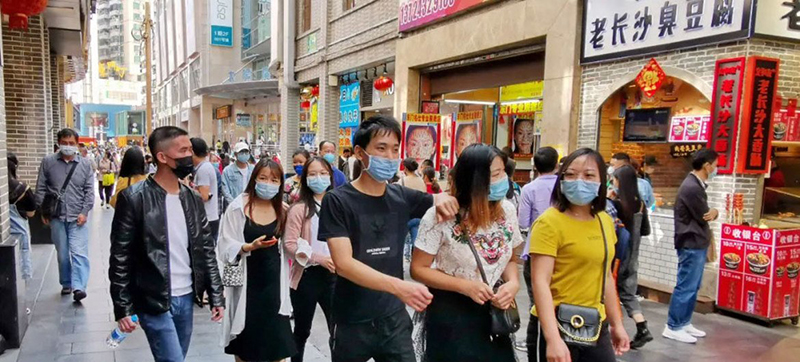 China COVID19
China COVID19
WHO’s Tedros recaps challenging year, appeals for more information on COVID spread in China
New York: The head of the World Health Organization (WHO) expressed concern on Wednesday over the evolving COVID-19 situation in China, saying the UN agency continued to receive increasing reports of severe continuous disease across the country.
To make a comprehensive risk assessment of the situation on the ground, Tedros Adhanom Ghebreyesu told journalists at a regular briefing in Geneva that WHO needs more detailed information on disease severity, hospital admissions and requirements for ICU support.
“WHO is supporting China to focus its efforts on vaccinating people at the highest risk across the country, and we continue to offer our support for clinical care and protecting its health system”, he said.
Challenging year
Although in its third year, COVID-19 is not the only challenge for the world’s people.
From a global outbreak of monkeypox, now known as mpox, to cholera eruptions in multiple countries and an Ebola occurrence in Uganda, to wars in Ethiopia and Ukraine; drought and flooding in the greater Horn of Africa and the Sahel; and flooding in Pakistan, the year has been challenging on many fronts.
“That’s not to mention the multiple other threats to health that people face year in, year out, in the air they breathe, the products they consume, the conditions in which they live and work, and in their lack of access to essential health services”, Tedros said.
Cause for optimism
As 2022 draws to a close, he optimistically outlined “many reasons for hope”.
“The COVID-19 pandemic has declined significantly this year, the global monkeypox outbreak is waning, and there have been no cases of Ebola in Uganda for more than three weeks”, the WHO chief observed.
He expressed hope that each of these emergencies will be declared over at different points next year.
“Certainly, we are in a much better place with the pandemic than we were a year ago, when we were in the early stages of the Omicron wave, with rapidly increasing cases and deaths”, the senior UN official continued.
“Since the peak at the end of January, the number of weekly reported COVID-19 deaths has dropped almost 90 per cent”.
Gaps and uncertainties
With many uncertainties and gaps remaining, he maintained however, that it is too early to say that the pandemic is over.
The WHO chief painted a picture of gaps in surveillance; vaccinations; treatments and health systems.
Moreover, gaps in understanding – from how the pandemic began to post-COVID-19 conditions – mean we do not know the best treatment for those suffering from the long-term consequences of infection or how to prevent future pandemics.
“We continue to call on China to share the data and conduct the studies we have requested, and which we continue to request”, Tedros said, noting that “all hypotheses about the origins of this pandemic remain on the table”.
Support Our Journalism
We cannot do without you.. your contribution supports unbiased journalism
IBNS is not driven by any ism- not wokeism, not racism, not skewed secularism, not hyper right-wing or left liberal ideals, nor by any hardline religious beliefs or hyper nationalism. We want to serve you good old objective news, as they are. We do not judge or preach. We let people decide for themselves. We only try to present factual and well-sourced news.







